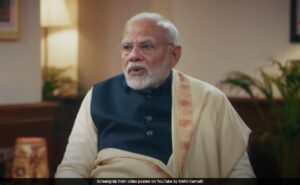

As Union Budget 2025 draws near, experts from the education and MSME sectors have shared their proposals for enhancing growth and inclusivity. Experts have outlined specific areas where the government’s support can drive innovation, foster skill development, and address financial challenges.
Enhancing education accessibility and quality
Rural support
One of the key proposals for the education sector is improving infrastructure, especially in underserved areas.
Rajeev Tiwari and Anurag Gupta, Co-Founders of STEMROBO Technologies, emphasised the need for investments in high-speed internet and digital devices in schools.
“The government should allocate funds to improve digital infrastructure in rural areas. Investments in digital tools and smart classrooms will help bridge the education gap between urban and rural students,” Tiwari said.
Gupta added, “Teacher training in new technologies like AI, coding, and robotics is essential for preparing students for future job markets.”
Expanding access to international education for students
Financial support for students pursuing higher education abroad is another pressing area.
Daljeet Sandhu, CEO of Daltin AI Portal, proposed reducing the tax collected at source (TCS) on foreign remittances for education from 20% to 5%.
“This reduction would alleviate the financial burden on families managing high overseas education expenses. Along with that, allocating more funds for scholarships and interest subsidies on student loans would make global education more accessible to Indian students,” Sandhu added.
AI and personalised learning for education
With technology revolutionising education, Arpit Mittal, Founder & CEO of SpeakX, highlighted the importance of integrating AI in education.
“The Union Budget should focus on making AI tools accessible to students, particularly in rural and underserved areas. Providing tax incentives for edtech companies will help scale AI-driven personalised learning solutions,” Mittal stated.
He also stressed the need for investments in digital infrastructure to ensure equal access to these tools.
Public-private partnerships (PPP) for education reform
Ruchi Arora, Associate Professor at BIMTECH, suggested that collaborations between the public and private sectors could play a crucial role in improving education.
“The government should leverage the strengths of both sectors to enhance the digital learning infrastructure, provide scholarships, and offer skill-based programmes that align with industry needs,” said Arora.
She also called for an increased GDP allocation towards education, recommending a rise to at least 6%, as proposed by the NEP.
Strengthening the MSME sector for global competitiveness
Technology adoption in MSMEs
The MSME sector, a backbone of India’s economy, requires focus on innovation and technological adoption.
Abhishek Anand, Partner at MicroSave Consulting, proposed incentivising MSMEs to integrate advanced technologies such as AI, blockchain, and robotics.
“These technologies can enhance productivity, boost innovation, and enable MSMEs to compete globally. The budget should focus on providing financial incentives for technology adoption,” Anand said.
New financing mechanisms for MSMEs
To support MSME growth, Anand also recommended the introduction of innovative financing mechanisms, such as crowdfunding and supply chain financing.
“These mechanisms can unlock new funding avenues, helping MSMEs overcome financial barriers and enabling them to scale up effectively,” he added.



